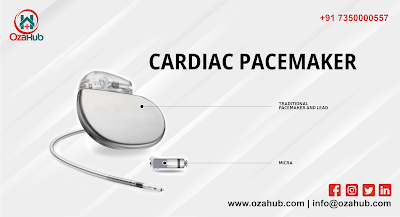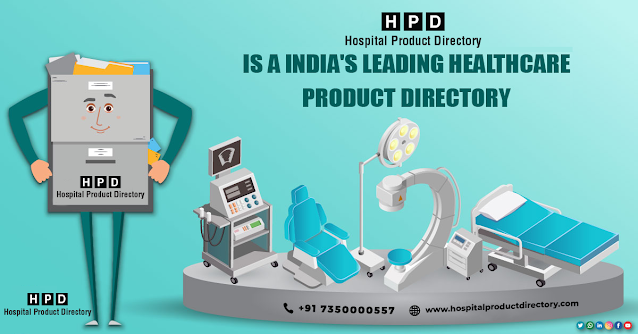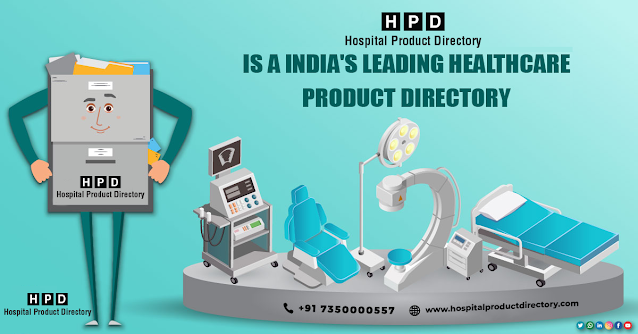How is a cardiac pacemaker inserted?
A Cardiac pacemaker is a scheme that controls the heartbeat. If your doctor endorses a pacemaker for you, you will requisite to endure surgical treatment for it to be embedded. A cardiac pacemaker transports additional electrical instincts to the heart to make it stroke earlier. A pacemaker made by Cardiac Pacemaker Manufacturers contains 2 mechanisms: a pulse producer and cloistered pointers. Some pacemakers have 1 tip whereas others have 2. The pulse producer is a minor metal container that covers a very small microelectronic bit and a battery. The battery transports the thump and the microelectronic bit acts comparable to a computer package. The microelectronic chip essences the heart’s stroke and then guides out electrical gestures consequently, to uphold a normal rate. The latest prototypes of pulse producers consider less than 1 iota and are very reedy. They have to be substituted when the battery expires, around every 7-10 years. The tips go from the pulse producer to the heart muscle through blood receptacles. They have 2 purposes:
They view how fast the heart is thrashing and send
the info to the pulse producer.
Rendering to signal from the pulse producer, the
tips convey electrical signs to the heart to rouse beats. Assigning a cardiac
pacemaker is a modest process that is often completed under local anaesthesia.
This means only the area of the cut is anaesthetized; you will still be
wide-awake. Your clinician may also give you some medicine to keep you
tranquil. Your upper torso will be eviscerated and, if desired, the hair will
also be trimmed before the pacemaker process. First, the medic makes a small
cut in the upper trunk, under the collarbone. This will be whichever on the
right or the left side of your torso. The cut is about 2-3 inches extended.
Following, the medic monitors the tips of the pacemaker bought from a Cardiac Pacemaker
Suppliers over a big vein to the heart. To location the tips
on the inner exterior of the heart muscle, the doctor uses a singular kind of
x-ray called fluoroscopy. After taking an electrical extent to make sure that
the tips are in the precise spot, the medic generates a small space under the
skin to fit the pulse producer under the skin of the torso. The tips are linked
to the pulse producer and the pulse producer is positioned in the distinct
space or “pocket” under the skin. Lastly, the surgeon closes the cut and
shields it with gauze to keep it hygienic. The entire process lasts 60 minutes.
Inserting a cardiac pacemaker is a very harmless
process. Dangers and problems are very rare but in the offing. The subsequent
dangers are mutual to any operating procedure. Though, they are very infrequent
for pacemaker surgical treatment.
There is a danger of haemorrhage.
There is a danger of contagion. Contagion may
necessitate substituting the pacemaker and taking antibiotics.
A blemish may progress, which may be sore or
unappealing. The pulse producer may generate a small protuberance under the
skin.
A danger that is exact to this process is the
option that the pacemaker may nose-dive. Due to scientific progress, this
danger is highly improbable to happen, though, it is still likely. If it
befalls, the cardiac pacemaker would demand substitution.
The tips or chains of the pacemaker may come slack
or lose their networks with the heart. If this occurs, another process may be
required to relocate the tips. The heart or lungs may be hurt during the
process. Though this is very infrequent.
Directly after a pacemaker surgical procedure, a
nurse will your vital signs. The medic will tell you if you require to stay at
the infirmary and for how long. Occasionally it is conceivable to go home the
same day that you have the pacemaker operation, but most patients expend 1-2
days at the infirmary after pacemaker surgery.
If you are
looking for Cardiac Pacemaker
Dealers, please log onto Ozahub.




Comments
Post a Comment